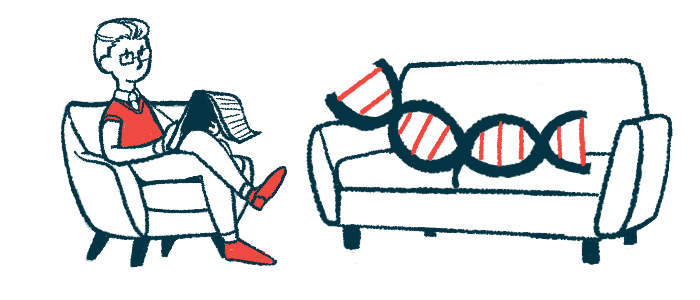Klotho advances ALS gene therapy KLTO‑202 to manufacturing phase
Under developer's plan, first human study could launch next year
Written by |

Klotho Neurosciences is advancing KLTO‑202, its gene therapy candidate for amyotrophic lateral sclerosis (ALS), to the manufacturing and process development phase — with an eye toward trials in humans beginning next year.
The manufacturing phase is expected to last about eight months, and will be followed by 4-6 months of regulatory preparation, including meetings with the U.S. Food and Drug Administration (FDA), Klotho stated in a company press release. After that will be the completion of animal safety studies required by the FDA, and the filing of an application to the regulatory agency requesting clearance to start clinical testing of the gene therapy.
Together, these steps are being taken “in preparation for clinical trials of KLTO-202,” per the release.
If all goes according to plan, the company expects to launch its first human study — a single-dose trial testing KLTO‑202 in people with ALS — by the third quarter of next year.
To accelerate the treatment’s development and reduce costs, Klotho (formerly known as Anew Medical) is planning to partner with contract research organizations to oversee all activities, including manufacturing and clinical trial execution, the company said.
ALS is a progressive disorder marked by the loss of motor neurons, which are nerve cells that control voluntary movements. While the mechanisms behind this are not fully understood, a circulating protein called secreted alpha-Klotho (s-KL) may protect nerve cells from damage by reducing inflammation and oxidative stress, or an imbalance between the production and clearance of harmful oxygen-containing molecules.
The protein is also believed to have myoregenerative properties, meaning it may help repair or rebuild muscle tissue that weakens as motor neurons die.
KLTO-202 designed to slow disease progression
KLTO-202 is designed to boost the production of that protein in muscle and nerve cells by delivering the gene that codes for s-KL via a modified and harmless viral vector called an adeno-associated virus (AAV). The treatment has the potential to provide long-term supplementation of the protein to cells with a single infusion.
Administered intravenously, or directly into a person’s vein, KLTO‑202 aims to slow or prevent neuronal loss to potentially slow disease progression and increase survival.
In animal models of ALS, where the s-KL protein is found at lower levels in the muscles and spinal cord, a gene therapy delivering the gene coding for s-KL resulted in multiple signs of therapeutic benefit, study data showed. Treated animals exhibited improved muscle strength and coordination, delayed onset and slower progression of disease symptoms, and prolonged survival.
The therapy also reduced inflammation and preserved motor neurons in both the spinal cord and the motor cortex, which is the region of the brain that initiates voluntary muscle movement. Additionally, increased sKL levels helped to maintain neuromuscular junctions, critical connection points where motor neurons send signals to muscle fibers.
We’re moving forward with manufacturing KLTO-202. … We’ve identified a more efficient method of producing the AAV vector to deliver the s-KL gene directly to motor neurons — the cells most affected by ALS.
These findings support the transition of KLTO-202 into the clinical development stage, according to Klotho.
“We’re moving forward with manufacturing … KLTO-202,” said Joseph Sinkule, Klotho’s CEO and founder. “We’ve identified a more efficient method of producing the AAV vector to deliver the s-KL gene directly to motor neurons — the cells most affected by ALS. Our goal is to increase local s-KL protein levels to protect these neurons from the damage that leads to voluntary and involuntary muscle paralysis and ultimately death.”
KLTO-202 was licensed from the Autonomous University of Barcelona, and is protected by patents covering the use of s-KL in gene therapy applications.






